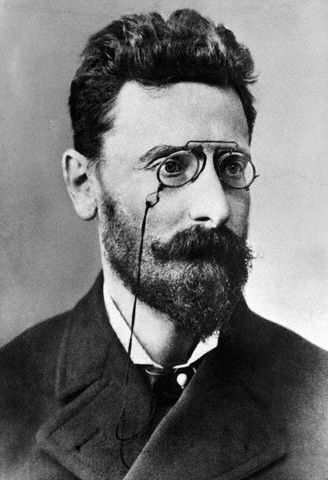These are twenty-five ideas, in no particular order, I have come across in the past six months, which have challenged my thinking and sparked changes in my actions. Many of these ideas come from the books or articles which I read and share in my monthly newsletter.
Find something new every day to put in your commonplace book.
From Daily Stoic’s reading challenge (which I wrote about here).
Write Clear sentences:
Connect to the previous sentence.
Link to the following sentence.
Eliminate anything that adds confusion.
Add colorful details.
Remove unnecessary words.
From David Perell
“The work required to hold an opinion means that you can argue against yourself better than others can.”
“The work is the hard part, that’s why people avoid it. You have to do the reading. You have to talk to anyone competent you can find and listen to their arguments. You have to think about the key variables and how they interact. You have to listen and chase down arguments that run counter to your views. You have to think about how you might be fooling yourself. You have to see the issue through multiple lenses. You need to become your most intelligent critic and have the intellectual honesty to kill some of your best-loved ideas.”
From Shane Parrish’s Farnam Street Blog
Chesterton’s Fence:
“In the matter of reforming things, as distinct from deforming them, there is one plain and simple principle; a principle which will probably be called a paradox. There exists in such a case a certain institution or law; let us say, for the sake of simplicity, a fence or gate erected across a road. The more modern type of reformer goes gaily up to it and says, “I don’t see the use of this; let us clear it away.” To which the more intelligent type of reformer will do well to answer: “If you don’t see the use of it, I certainly won’t let you clear it away. Go away and think. Then, when you can come back and tell me that you do see the use of it, I may allow you to destroy it.”“
-From G.K. Chesterton’s 1929 book, The Thing, chapter “The Drift from Domesticity”
It’s best to figure out why the fence exists before you clear it away.
The Pareto principle or the 80-20 rule:
“The majority of outcomes are driven by a minority of events.”
Putting this idea into practice, what 20% of your actions drive 80% of your results? How can you refine further and make 20% of that action provide 80% of your results?
What Morgan Housel calls “chronological snobbery“:
Described by C.S. Lewis, “The assumption that whatever has gone out of date is on that account discredited. You must find why it went out of date. Was it ever refuted (and if so by whom, where, and how conclusively) or did it merely die away as fashions do? If the latter, this tells us nothing about its truth or falsehood. From seeing this, one passes to the realization that our own age is also ‘a period,’ and certainly has, like all periods, its own characteristic illusions.”
Hanlon’s Razor:
“Never attribute to malice that which can be adequately explained by neglect.”
Coined by Robert J. Hanlon in Arthur Bloch’s 1980 book, Murphy’s Law Book Two: More Reasons Why Things Go Wrong!
“Failing to consider second- and third-order consequences is the cause of a lot of painfully bad decisions, and it is especially deadly when the first inferior option confirms your own biases. Never seize on the first available option, no matter how good it seems, before you’ve asked questions and explored.”—Ray Dalio
First-order thinking is fast and easy. Second-order thinking is more deliberate. Second order thinkers ask themselves the question “And then what?”
Extraordinary performance comes from seeing things that other people can’t see.
From Farnam Street’s blog.
To optimize does not mean “to go faster“:
From the Latin optimus (best), meaning ‘to make as perfect, effective or functional as possible.‘
For most of us, this means devoting more time to fewer things, moving slower to make them more effective. This is the difference between moving intentionally and rushing to complete a project.
Walt Whitman on literature:
“[Literature] has become the only general means of morally influencing the world.”
“once we refuse to obey unjust laws, we must graciously accept the punishment, regardless of what is fair.”
It’s not the act of protesting unjust laws, but suffering punishment for disobeying unjust laws which demonstrates their unfairness to society.
Joseph Pulitzer’s credo:

“Our Republic and its press will rise or fall together. An able, disinterested, public-spirited press, with trained intelligence to know the right and courage to do it, can preserve that public virtue without which popular government is a sham and a mockery. A cynical, mercenary, demagogic press will produce in time a people as base as itself. The power to mould the future of the Republic will be in the hands of the journalists of future generations.”
Take breaks from focus, not distraction. – From Cal Newport’s Deep Work.
Effort and persistence don’t just overcome, they compound:
“That which we persist in doing becomes easier for us to do; not that the nature of the thing itself is changed, but that our power to do is increased.” — Ralph Waldo Emerson
The Message is the Medium, by Marshall McLuhan:
“any technology gradually creates a totally new human environment.”
“The effects of technology do not occur at the level of opinions or concepts, but alter sense ratios or patterns of perception steadily and without any resistance.”
“It is not an exaggeration to say that the future of modern society and the stability of its inner life depend in large part on the maintenance of an equilibrium between the strength of the techniques of communication and the capacity of the individual’s own reaction.”
Technology changes society not only by the messages relayed, but by means of the way those messages are relayed. The internet changes society in ways completely different from radio or print media.
Exercise is an opportunity to “practice suffering.” – From The Growth Equation.
Studies on salt:
The human body needs salt, though we’ve been eating less and less of it in recent years. Surprisingly, many of the longest living populations also eat the most salt, as in Japan and other parts of Asia. Of course, correlation does not equal causation, however the overlap is boggling. This Western world reduction of salt to below 2 teaspoons a day may turn out to be flawed advice.
From The Salt Scam:
“Although low salt diets could lower blood pressure, “Existing evidence, however, does not support either a positive or negative effect of lowering sodium intake to <2300 mg/d in terms of cardiovascular risk or mortality in the general population.”. That is, lowering the salt intake did not reduce risk of heart attack or death.” (emphasis mine).
“Have almost too much self-belief”:
“Self-belief is immensely powerful. The most successful people I know believe in themselves almost to the point of delusion.”
“Cultivate this early. As you get more data points that your judgment is good and you can consistently deliver results, trust yourself more.”
“If you don’t believe in yourself, it’s hard to let yourself have contrarian ideas about the future. But this is where most value gets created.”
From Sam Altman’s How to Be Successful
Presidential diaries:
Isn’t it fascinating that only five US presidents kept any sort of journal during their time in office? Only George Washington, John Quincy Adams, James K. Polk, Rutherford B. Hayes, and Ronald Reagan kept regular diaries during their terms.
It’s such a rare position to hold, I’d imagine one would want to note the experience in real time.
Modernize the workweek:
“Forty hour workweeks are a relic of the Industrial Age.
Knowledge workers function like athletes – train and sprint, then rest and reassess.” – Naval Ravikant
The tyranny of the urgent:
“The tyranny of the urgent will continue to rule the world unless we opt out.”
Choose to work on what is most important, not what is most pressing.
From Barrett Brooks. I revisit this insightful blog post regularly; the entire post is excellent.
The US Mean Center of Population has been moving west for centuries:

“You can trade intelligence for nearly anything.
If you’re smart, you can figure out how to be healthy.
If you’re smart, you can figure out how to be wealthy.
If you’re smart, you can figure out how to be happy.”
From Naval Ravikant
“Our nation and our civilization were built on production, on building. Our forefathers and foremothers built roads and trains, farms and factories, then the computer, the microchip, the smartphone, and uncounted thousands of other things that we now take for granted, that are all around us, that define our lives and provide for our well-being. There is only one way to honor their legacy and to create the future we want for our own children and grandchildren, and that’s to build.”
From Marc Andreessen
Stop Preparing for the Last Disaster
“After a particularly trying event, most people prepare for a repeat of whatever challenge they just faced. From the micro level to the macro level, we succumb to the availability bias and get ready to fight a war we’ve already fought. We learn that one lesson, but we don’t generalize that knowledge or expand it to other areas.” (emphasis mine)
From Farnam Street Blog
If you’d like to see ideas like these via email, sign up for my newsletter here.




